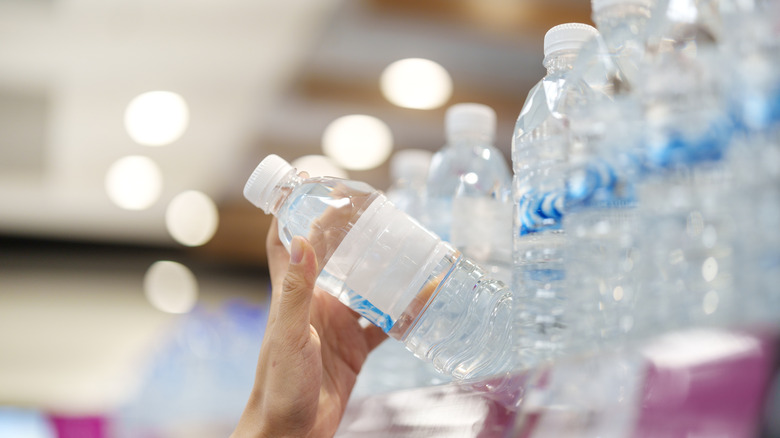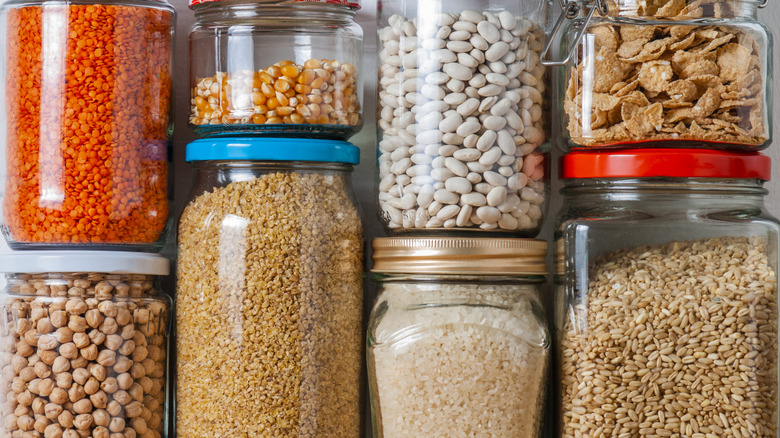How To Prepare Your Pantry And Fridge For A Hurricane
We may receive a commission on purchases made from links.
Hurricane season can be a frightening time for anyone at risk of being affected. But while no one can control when a hurricane forms or how strong it is, you can make sure that you're as prepared for it as possible. The first step is to buy the necessary supplies. Items with a long shelf life should be bought at the start of the season rather than when a possible storm is announced. That way, you can avoid shortages at the supermarket, and impossibly long lines. Water should be your first priority. Buy both gallons and individual bottles and keep them in a cool place in the house. Besides hydration, water will help you cook in a safe manner if aqueducts are affected. Next are canned goods, including soups, fruit, vegetables, legumes, and meats (preferably fish like tuna and sardines). These items last long, and are easy to cook and consume in an emergency.
Next, get long-lasting nuts and grains like trail mix, peanuts, pasta, rice, and cereal. Buy powdered milk or shelf-safe alternatives like almond milk, which doesn't have to be refrigerated until open. Other must-haves include dry fruits, peanut butter (which lasts 2-3 months unrefrigerated), instant coffee, and beef jerky (which you be out of the fridge for two weeks after opening). If you live somewhere that gets frequent hurricanes, it's a good idea to have an emergency food supply kit, like ReadyWise's 104-serving meal bucket that has a 25-year shelf life.
Preparing your kitchen for an emergency
If you have your supplies on hand before a storm is announced, you'll be able to focus your energy on preparing your fridge once you know a hurricane is coming. First, try to eat everything in your fridge that will perish quickly, and move things around in your freezer to make sure that there is enough space for extra food. While a fridge will keep your food safe for four hours after a power outage, a full freezer will keep working for 48 hours. Having extra space will help you quickly move food to the freezer if needed. If you have time, try to pickle any foods like hard-boiled eggs. If you still have electricity but can't make it to the grocery store, these foods will save you in a pickle.
Once your fridge is prepared, place grains, crackers, and nuts in air-tight containers. This will keep them fresher for longer and, more importantly, will protect them from water in case of a flood. To be even safer, place them at the top of the pantry. You should also stock up on disposable plates. Even if they're not great for the environment, they will save you if your water gets cut off. You don't want to accumulate dirty dishes that'll bring in pests. Buying a portable fuel stove is also a good idea. If your electricity gets shut off, you'll be able to cook grains and dry meals until the power is back on.

